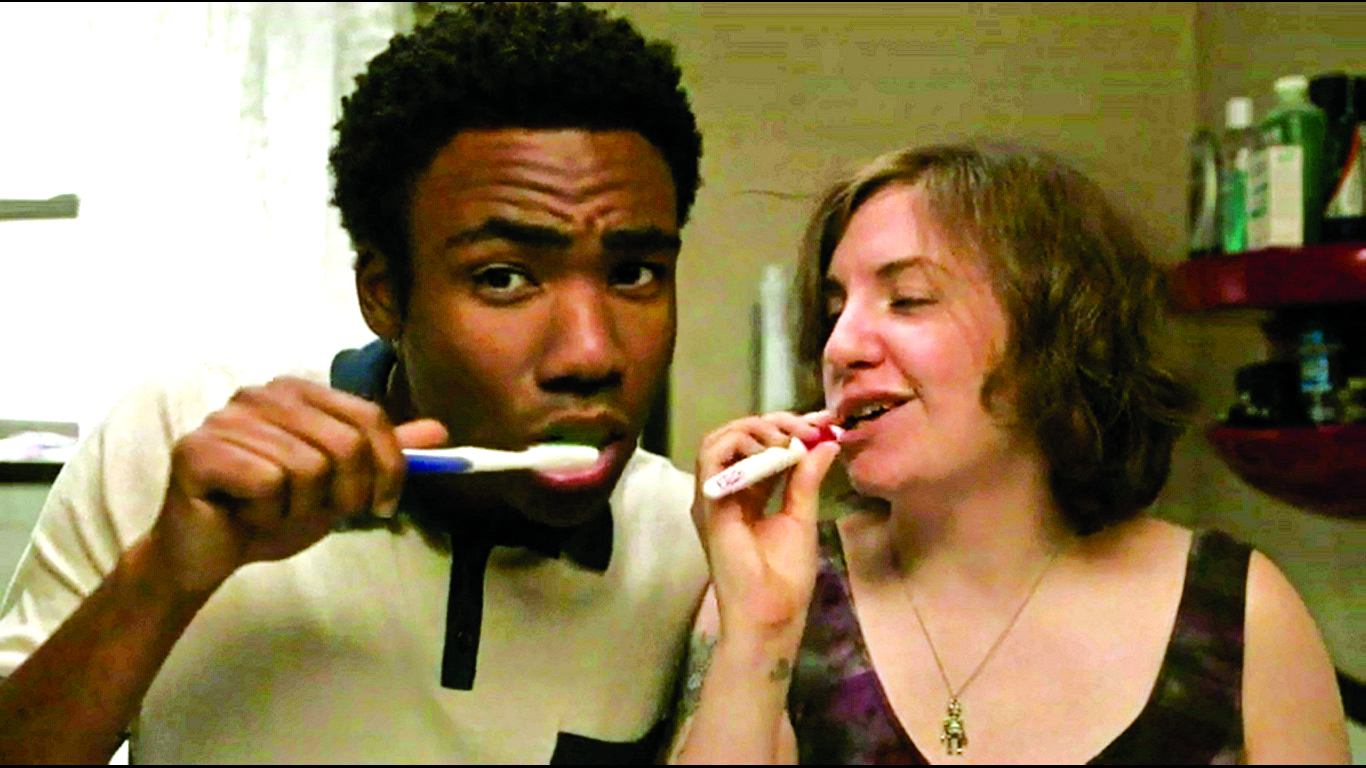Try as she might, Dunham will never solve the problem of multi-racial representation on television

On the issue of race, Lena Dunham’s Girls will never win.
HBO’s Golden-Globe-winning TV series about four privileged, 20-something-year-old women in New York has been fraught with controversy since its first episode.
After the initial hoopla about the privilege of the show’s characters subsided, every critic’s head was exploding with opinions about the whiteness of its cast. It’s about young people in Brooklyn, and there isn’t a single black, brown, or Asian character? Blasphemy.
Though the lack of minorities in the first season never bothered me personally, I understood why people were upset. They had a point—any one of Hannah, Marnie, Jessa, and Shoshanna could have been played by a non-white actor and made sense. Only a tiny sect of society was represented on the show, though many non-white women felt they could relate to it.
I, as a visible minority, was supposed to feel offended and invisible.
But Dunham’s response to all the criticism on NPR was sufficient for me: an all-white cast was an accident, she said.
I think it’s perfectly possible for four people of the same race to be best friends and have minimal contact with people outside their group. I don’t think that makes them racist.
I was happy she didn’t force in an unrealistic Indian or black character for the sake of satisfying some ridiculous diversity quota for an overly sensitive audience of critics. Having no ethnic diversity is much better than tokenization in my books. Too many shows have done this in the past and gotten away with it, or worse yet, been applauded for it.
I knew in season two, Dunham would address the criticism, and she has. It was a smart move to cast Donald Glover to star as Hannah’s black boyfriend, Sandy, but the writers exceeded my expectations, actually exploring the issue of race as it came up between the couple.
Hannah, who calls herself a writer, is offended when Sandy criticizes her essay, attacking his political beliefs in retaliation (Sandy is *gasp* a Republican). The argument quickly turns to race, Hannah ignorantly questioning how his political orientation could be juxtaposed with his values as a black man.
A heated political debate between two educated hipsters, who’ve been pretending not to notice their racial differences, is bound to go sour quickly.
“I would love to know how you feel about the fact that two out of three people on death row are black men,” she says. Frustrated, he responds, “Wow, Hannah. I didn’t know that. Thank you for enlightening me that things are tougher for minorities.”
“‘Oh, I’m a white girl, and I moved to New York, and I’m having a great time, and I got a fixed gear bike, and I’m gonna date a black guy, and we’re gonna go to a dangerous part of town,’” he mocks her. He accuses her of not being able to deal with who he is.
In true Hannah style, she denies having thought of him as black at all, despite having brought up the death row stat herself.
“That’s crazy,” Sandy tells her, exasperated. She should because that’s who he is, he says, ending the conversation.
This is a perfect encapsulation of how awkward our generation is about race.
While she apologizes for the glaring absence of minorities in the last season of the show, Dunham also puts on display the “hipster racism” that she and her characters have been condemned for, holding Hannah’s naivety and privilege up for mockery.
The term, popularized by an article published in Jezebel, refers to our generation’s collective denial that racism still exists, and our ironic use of racist slurs and jokes, among other things.
A weird feeling swept over me as I watched the scene, shamefully coming to terms with my own prejudices. Executive producer Jenni Konner, who wrote the episode, successfully brought to the screen an honest depiction of the racial and political tensions we still face.
I think the scene is both an apology and a fuck-you to critics—it shows the gutsy self-awareness that Girls is known for. But not everyone agrees with me.
“I have never met a black Republican in all my time in New York. And I’m black,” writes Ta-Nehisi Coates of The Atlantic. “I have trouble believing that Hannah has found that one black dude in Brooklyn who is anti-marriage equality, anti-abortion, pro-guns, and anti-health care.”
Others are still unimpressed by the fact Sandy is the only black character on the show. It’s still not diverse enough, they say.
But if a self-critical nod like the one we saw in the beginning of the second season doesn’t satisfy the critics, then it seems we’ve reached a standstill.
Dunham can’t catch a break. When she doesn’t cast black actors or write black characters, she’s racist. When she tries to correct her mistake, she’s still a racist, and her writing is inauthentic.
So how do we move forward?
It seems to me that no matter how hard they try, white writers can’t get it 100 per cent right with black characters. But writing is really good when you write about what you know, and how could Dunham write an authentic black character when her experience is that of a white woman?
If we want to see more genuine portrayals of people of colour, the only solution that makes sense is supporting more non-white writers and directors. Only then will fighting for accurate representation not be necessary.
Racial differences will always exist, and because of them, one person cannot possibly be expected to accurately contextualize the struggle of everyone. The best we can do, as a society, is to acknowledge these differences and embrace them, instead of pretending they’re not there.
Tamara Khandaker, Copy Editor

